Hypothyroidism diet- 15 best and 15 worst foods to eat now
In the light of many studies, it has been estimated that 20 million Americans develop a thyroid disease in their lifetime [1]. Among those 20 millions, 6 millions hardly get to know about their condition. Either these patients fall prey to wrong diagnosis [2]. Or, some of the patients are not able to figure out that they are suffering from hypothyroidism. They just simply neglect the hypothyroidism symptoms.
An individual suffering from hypothyroidism can have a significant impact on his or her daily life. If this condition is left untreated, you can expect lots of complications in near future [3]. So, it is advised that you understand what is hypothyroidism? And, should not neglect the condition where you are experiencing any hypothyroidism symptoms.
Having problems with your thyroid needs proper attention and care. Generally, lifelong medications are prescribed to the patients of hypothyroidism. But, the condition of Hypothyroidism can be addressed naturally. A hypothyroidism diet is one such natural way to address your problem.
Our article has covered all the details on how a person struggling with hypothyroidism can live a normal life. We have included information on Hypothyroidism diet. You will learn about 15 best foods and 15 worst foods under the hypothyroidism diet.
Also, we have included a brief introduction on what is hypothyroidism and what are its causes? And also we have included the hypothyroidism symptoms; you should put your notice on?
What is Hypothyroidism?
Hypothyroidism is a medical condition where a person has an under active thyroid gland and your thyroid gland doesn`t produce required hormones. The thyroid gland is a small gland located on the front side of your neck just below your Adam’s apple. This is a butterfly shaped gland which is responsible for regulating your body metabolism [4]. The thyroid hormones regulates metabolism for every cell of your body [5].
Cause of Hypothyroidism
The condition of hypothyroidism is mainly caused due to the Hashimoto`s disease. A Hashimoto disease is an autoimmune disease where your body produces antibodies that attack its own tissues. Around 90% cases of Hypothyroidism are the causes of this disease [6].
The rest 10% cases of hypothyroidism can be counted under the cause of certain medications, radiation therapy, and hyperthyroidism treatment. It can also be the case when you are not consuming enough iodine. Iodine is required by your body for release of thyroid hormones.
Symptoms of Hypothyroidism
The condition of hypothyroidism slows down your metabolism to a point where you always feel tired, lethargic and out of energy. However, the symptoms of hypothyroidism vary for different individuals. It depends upon your deficiency of thyroid hormone in the body. The Hypothyroidism symptoms includes
1. Feeling of continued tiredness
If you are experiencing a continued tiredness during their whole day, get your thyroid test done. Fatigue is the prime symptom diagnosed in the hypothyroidism patients [7]. You may feel sleepy during your whole day if you are down with hypothyroidism.
2. Weakness in your body
The patients of hypothyroidism experience tingling and numbness in their arms and legs. You would complain about weakness in your muscles if you are suffering from hypothyroidism. The weakness in your body is caused by catabolic metabolism which is a result of hypothyroidism. During such a metabolism, your body is breaking down your muscle tissues in lieu of producing energy.
3. Mental fatigue and depression
The symptoms of mental fatigue and depression are common in hypothyroidism patients [8]. You can count this depression as a result of loss of energy and deterioration of health.
4. Feeling colder
The patients struggling with the condition of hypothyroidism has a weak BMR and their body then burn less calories. Less calories means less heat and you end up feeling colder. Hypothyroidism also affects the brown adipose tissue of your body. It prevents the brown adipose tissue to maintain your body heat especially in cold weather. However, the cause of hypothyroidism on brown adipose tissue is still under research phase. [9]
5. Irregular and heavy periods
The woman suffering from hypothyroidism is likely to experience irregular periods with a heavy flow [10] [11]. The problem of abnormal menstruation periods in hypothyroidism is linked to Thyrotropin releasing hormone (TRH). A thyroid dysfunction leads to alteration in various hormone levels including prolactin, gondatropin releasing hormone, and sex hormone-binding globulin which contributes to your menstruation abnormalities [12].
Hypothyroidism Diet
If you are suffering from hypothyroidism, taking right dietary approach will help you deal with your situation. You need to modify your diet by including the right foods and excluding the wrong foods from your diet.
The best foods to eat in Hypothyroidism diet
The best foods you should consume in your hypothyroidism diet should include these 4 specific nutrients namely
· Iodine:
Iodine is an important nutrient responsible for production of thyroid hormone. The thyroid gland produces two hormones namely T3 and T4 by using iodine from food [13]. Therefore, you should consume right amounts of iodine in your diet for optimal thyroid function.
Also, too much iodine can also do harm in your condition. Your daily intake of iodine should be at 150 mcg per day [14]. However, it is always a good idea that you talk with your doctor for the dose of iodine in hypothyroidism.
· Selenium
The second important nutrient for optimal thyroid function is selenium. The selenium is responsible for conversion of T4 into T3. The thyroid gland of your body contains selenium which removes iodine molecules from T4 thereby converting it into T3. When the patients suffering from thyroid conditions tested for selenium levels, they have fewer levels as compared to normal levels.
The daily RDA for selenium is at 55 mcg and 400 mcg being the upper limit [15]. You can aim for RDA of selenium by your daily diet if you are eating a balanced diet.
· Zinc and Copper
Zinc and copper forms an important link for a good thyroid health. These minerals together share an important relationship for your thyroid function. The most important element at first glance for thyroid health is zinc, which is responsible for conversion of T4 into T3. But, if you dig further, copper is also needed for proper zinc and copper balance in your body.
The copper is needed by body to protect itself from too much T3 in the blood. So a proper ratio of zinc to copper is required by the body to maintain its health. Also, if you take zinc alone in your diet, the bioavailability of copper can get disturbed [16]. The RDA of zinc is at 8 mg per day for women and 11 mg for men [17]. You should consume zinc and copper in the ratio of 8:1
15 Best foods to eat in hypothyroidism diet
We are now talking about the foods to include in your hypothyroidism diet. Earlier, we have prepared a list of important nutrients that should be present in your diet. So, we are including foods in hypothyroidism diet which contain all these important nutrients.
Foods rich in Iodine for Hypothyroidism diet
1. Yogurt for hypothyroidism diet
Including Probiotics like a fat free yogurt can improve your thyroid function. Yogurt is a good source of iodine. An organic plain low fat yogurt contains about 75 mcg of iodine [18] which makes up your 50% of RDA.
2. Drink milk in hypothyroidism diet
Drinking a cup of low fat milk can help you deal with your under active thyroid gland. Milk is rich in iodine and one cup of it will supply you with 56 mcg of iodine. So drinking milk can provide you with 37% of your Iodine RDA [18]
3. Eat baked Potato in hypothyroidism diet
Including baked potato in your hypothyroidism diet can provide you with 40% of your daily RDA of Iodine. One medium baked potato can supply you with 60 mcg of iodine. Potato is also a good source of tyrosine, an amino acid required for your optimal thyroid function [19].
4. Cheddar cheese for hypothyroidism diet
Cheddar cheese is a good option to reverse your hypothyroidism. Most of the cheese contains iodine content and eating 1 slice of cheese can complete your 8% RDA or 12 mcg of iodine [18]. Include a cheese slice daily if you are struggling with hypothyroidism.
5. Include navy beans in your hypothyroidism diet
Beans are rich source of iodine. Packed with fiber, they can help you deal with hypothyroidism with ease. Eating a half cup serving of these beans is rich in protein , and will serve you with good amounts of copper, potassium and iodine. A half cup serving of navy beans has 32 mcg iodine which will complete your 21% RDA of iodine [20].
Note on consuming calcium in hypothyroidism diet:
There are some beliefs on not consuming dairy during hypothyroidism. People relatively feel consuming dairy products during hypothyroidism will only worsen their situation. It can be true in some case only with people having certain food allergies.
But, a point to note here is that the calcium content in milk, yogurt and cheese can affect the absorption of your thyroid medication. So it is always advisable that you properly space your thyroid medication and your calcium intake. [21]
Foods rich in selenium for hypothyroidism diet
1. Chia seeds for hypothyroidism diet
Chia seeds have a positive effect on your thyroid. They are an excellent source of both selenium and essential fatty acids. The essential fatty acids or the EFA`s namely the omega 3 and the omega 6 improves your thyroid function [22].
Your thyroid gland suffers from inflammation in case of hypothyroidism. Eating a handful of chia seeds can decrease inflammation. One serving or 12 grams of chia seeds can provide you 6.6 mcg of selenium. This amount will fulfill your 10% RDA value of selenium [23].
2. Quinoa for hypothyroidism diet
Quinoa is a healthy food option for patients of hypothyroidism. It is a gluten free food to complete your daily values of selenium. It is great food for vegans who wish to add a complete amino acid profile in their diet.
Quinoa contains iron, magnesium, vitamin E and B2. It contains healthy unsaturated fats and soluble fibres which will ensure a good heart health. One serving or 185 gram of quinoa provides you with 5.18 mcg and 9% of RDA of selenium [24].
3. Sunflower Seeds for hypothyroidism diet
Sunflower seeds are nutrient dense food which can serve you with 34% RDA of selenium. One fourth cup or 35 grams of sunflower seeds can give you 18.55 mcg of selenium [24]. Also, the vitamin E content in sunflower will help you beat inflammation.
4. White Button Mushroom in hypothyroidism diet
The white button mushroom is an excellent source of selenium. It contains various trace minerals including vitamin D and iodine which are important for your thyroid health. A 70 gram serving of white button mushroom can supply you with 6.5 mcg and 9% RDA of selenium [25].
5. Include Oatmeal in hypothyroidism diet
The oatmeal is a good option for your breakfast if you are suffering with hypothyroidism. Oats are loaded with soluble dietary fibre and selenium. The soluble fibre will improve your digestion and selenium will promote better thyroid health.
This is gluten free food which can help you if you are gluten intolerant. A 100 gram serving of the Quaker oats is packed with 34 mcg and 61.8% RDA of selenium.
Foods rich in zinc and copper for hypothyroidism diet
1. Dark chocolate for hypothyroidism diet
You can occasionally include dark chocolate in your hypothyroidism diet. It can give you abundance of nutrients including zinc, copper and iron. A 100 gram of unsweetened dark chocolate is enough to provide you with 3.15 mg of zinc and 1.75 grams of copper.
Also read: How to control sudden sugar cravings?
2. Include watermelon seeds in hypothyroidism diet
Consuming watermelon seed is a pretty good idea when your thyroid health is concerned. The water melon seeds are mineral rich seeds. Zinc, iron, copper, folate, magnesium are contained in these seeds in good amount. A 100 gram serving of watermelon seeds can provide you with 10 mg of zinc [26] and 0.69 mg of copper [27].
3. Eat sesame seeds in hypothyroidism diet
Eating sesame seeds can provide you tyrosine which is an important amino acid for thyroid production. Also, 28 gram serving of sesame can provide you with 2.8 mg of zinc and 0.4 mg of copper [28].
4. Avocados for hypothyroidism diet
Avocados contain a good dose of healthy fats which can promote a healthy heart and endocrine health. Your thyroid will love you back if you include avocados in your diet. Furthermore, if you don’t consume adequate fat in your diet, you can have hormonal imbalances including thyroid dysfunction. Avocados are zinc rich fruits which contain about 1.3 mg dose in one medium fruit [29]. Also, 100 gram of this fruit contains 0.2 mg of copper. [30] [31]
5. Okra/Lady finger for hypothyroidism diet
Okra or lady finger is a must to include vegetable in your hypothyroidism diet. It contains good amounts of tyrosine and zinc. A 184 gram serving of okra contains 1 mg of zinc which completes your 7% RDA of zinc.
The worst foods to eat in hypothyroidism diet
The worst foods that can affect your thyroid health will primarily consist of these 3 below mentioned ingredients. Avoiding these foods in a hypothyroidism diet can help you aim for a better thyroid health.
· Foods containing Gluten
Gluten sensitivity can be a notable factor when your thyroid health is concerned. Eliminating gluten completely from your diet can improve your thyroid function. Patients suffering from Hashimotos disease has shown to be gluten intolerant. Consumption of gluten in Hashimotos disease can trigger an autoimmune response which can attack your thyroid gland making it worse [32].
· Goitrogenic Foods
Goitrogenic foods have a negative impact on your thyroid health. They can disturb the normal functioning of your thyroid gland by reducing how the thyroid gland uptakes iodine [33]. This problem can lead you to suffer from goiter, a condition where your thyroid gland becomes enlarged [34]. So, it is always advised by your doctor to eliminate goitrogenic foods from your hypothyroidism diet.
· Cruciferous Vegetables
Crucuiferous vegetables are the most nutrient loaded vegetables on the planet. But there are many debates on using cruciferous vegetables in hypothyroidism diet. Cruciferous vegetables contain glucosinolates which metabolize into isothyiocyanates. These isothyiocyanates have numerous health benefits including detox and anti cancer properties [35].
But the concern on using crucifier vegetables is that they also possess goitrogenic properties which can affect your thyroid health. However, the amounts of goitrogenic properties vary in different crucifiers. Also, there is no actual study that can claim the bad effect of using cruciferous vegetables in hypothyroidism diet. In our opinion, you should not avoid eating cruciferous vegetables. Rather, you should eat them in moderation to avail all the health benefits.
A notable case here is that, if you are suffering from hypothyroidism only due to iodine deficiency then you should definitely limit the consumption of crucifiers. Because the goitrogens contained in crucifiers can mess with your thyroid health. But if you are among the 95% cases of hypothyroidism which are the result of only auto immune disorder or hashimotos thyroiditis, you should definitely consider eating crucifiers to avail benefits to your digestive system.
Also, if you are eating cruciferous vegetables, try not to eat them in raw form. Instead cook them to reduce their goitrogenic properties.
15 foods to avoid in hypothyroidism diet
The above information on the ingredients can give you a glimpse on foods you should avoid during hypothyroidism diet. Let us now summarize the above information and give you list of all the foods you will be avoiding in your hypothyroidism diet.
Avoid these 5 gluten foods in your hypothyroidism diet
1. Wheat
2. Millets
3. Rye
4. Barley
5. Semolina
5 Goitrogenic foods to avoid during hypothyroidism diet
1. Soy
2. Strawberries
3. Peanuts
4. Sweet Potato
5. Peaches
5 Cruciferous vegetables that can affect your thyroid health
1. Kale
2. Brussel Sprouts
3. Turnips
4. Radishes
5. Broccoli
The Bottom Line
If you are diagnosed with Hypothyroidism, making changes to lifestyle and in your diet can promote better thyroid health.
Bibliography
| [1] | “General Information/Press Room,” American Thyroid Association , [Online]. Available: https://www.thyroid.org/media-main/about-hypothyroidism/. |
| [2] | D. Dr. Tarrin P. Lupo, “5 Common Mistakes Your Thyroid Doctor Might Be Making,” [Online]. Available: http://www.holistic-healing-information.com/5-common-mistakes.html. |
| [3] | E. B. MD, “Complications of Hypothyroidism,” [Online]. Available: https://www.endocrineweb.com/conditions/hypothyroidism/complications-hypothyroidism. |
| [4] | “General Information/Press Room,” American Throid Association, [Online]. Available: https://www.thyroid.org/media-main/about-hypothyroidism/. |
| [5] | P. Robert M. Sargis MD, “How Your Thyroid Works,” [Online]. Available: https://www.endocrineweb.com/conditions/thyroid/how-your-thyroid-works. |
| [6] | “Natural Remedies for Hashimoto’s Disease,” [Online]. Available: https://draxe.com/hashimotos-disease/. |
| [7] | V. A. C. G. Kaltsas G, “Fatigue, endocrinopathies, and metabolic disorders,” Department of Pathophysiology, National University of Athens, Athens, Greece, [Online]. Available: https://www.ncbi.nlm.nih.gov/pubmed/20656620. |
| [8] | M. Neha Pathak, “Hypothyroidism and Depression,” [Online]. Available: https://www.webmd.com/women/guide/hypothyroidism-and-depression. |
| [9] | M. Q. Y. H. Z. Z. Z. C. H. F. G. Y. L. Y. Zhang Q, “The effects of thyroid hormones on brown adipose tissue in humans: a PET-CT study,” Division of Endocrinology and Metabolism, Huashan Hospital, Department of Internal Medicine, Shanghai Medical College, Fudan University, Shanghai, PR China, [Online]. Available: https://www.ncbi.nlm.nih.gov/pubmed/24823620. |
| [10] | P. N. K. T. P. P. P. J. P. N. D. L. Krassas GE, “Disturbances of menstruation in hypothyroidism,” Department of Endocrinology, Panagia Hospital, Thessaloniki, Greece, [Online]. Available: https://www.ncbi.nlm.nih.gov/pubmed/10468932. |
| [11] | H. Health, “PERIOD PROBLEMS AND HYPOTHYROIDISM,” [Online]. Available: https://www.hotzehwc.com/2011/08/period-problems-and-hypothyroidism/. |
| [12] | A. N. M. JULIA ARNETT, “Thyroid dysfunction and the menstrual cycle,” [Online]. Available: http://www.clinicaladvisor.com/advisor-forum/thyroid-dysfunction-and-the-menstrual-cycle/article/138094/. |
| [13] | “Thyroid Hormone Tests,” [Online]. Available: https://www.webmd.com/women/thyroid-hormone-tests#1. |
| [14] | “https://paleoleap.com/iodine-much-much/,” [Online]. Available: https://paleoleap.com/iodine-much-much/. |
| [15] | “Selenium,” National Institute of Health, [Online]. Available: https://ods.od.nih.gov/factsheets/Selenium-HealthProfessional/. |
| [16] | “Zinc,” Linus Pauling Institute, [Online]. Available: http://lpi.oregonstate.edu/mic/minerals/zinc. |
| [17] | M. C. Staff, “Zinc,” Mayo Clinic , [Online]. Available: https://www.mayoclinic.org/drugs-supplements-zinc/art-20366112. |
| [18] | “Iodine,” [Online]. Available: https://ods.od.nih.gov/factsheets/Iodine-HealthProfessional/. |
| [19] | “L-Tyrosine – It’s Benefits For Your Thyroid,” [Online]. Available: https://thyroidadvisor.com/l-tyrosine-its-benefits-for-your-thyroid/#comment-16554. |
| [20] | N. D. D. D. Dr. Edward Group DC, “7 Foods Rich in Iodine,” [Online]. Available: https://www.globalhealingcenter.com/natural-health/iodine-foods/. |
| [21] | D. Trentini, “Are you taking your thyroid medication properly…are you sure?,” [Online]. Available: https://hypothyroidmom.com/are-you-taking-your-thyroid-medication-properly-are-you-sure/. |
| [22] | “Fatty Acids And The Role They Play In Thyroid Health,” [Online]. Available: http://www.naturalendocrinesolutions.com/archives/fatty-acids-and-the-role-they-play-in-thyroid-health/. |
| [23] | “Chia seeds,” [Online]. Available: https://www.eatthismuch.com/food/view/chia-seeds,2608/. |
| [24] | “Sunflower seeds,” [Online]. Available: http://www.whfoods.com/. |
| [25] | “Mushrooms, white, raw Nutrition Facts & Calories,” [Online]. Available: http://nutritiondata.self.com/facts/vegetables-and-vegetable-products/2482/2. |
| [26] | “8 Foods High in Zinc – What Are Their Benefits?,” Dr. Edward Group DC, NP, DACBN, DCBCN, DABFM , [Online]. Available: https://www.globalhealingcenter.com/natural-health/foods-high-in-zinc/. |
| [27] | “Amount of Copper, Cu in Seeds, watermelon seed kernels, dried,” [Online]. Available: http://www.traditionaloven.com/foods/specific-nutrient/nuts-seeds/seeds-watermelon-seed-kernels-dried/copper-cu.html. |
| [28] | “Seeds, sesame flour, low-fat Nutrition Facts & Calories,” [Online]. Available: http://nutritiondata.self.com/facts/nut-and-seed-products/3074/2. |
| [29] | “Vegetables & Fruits Highest in Zinc,” [Online]. Available: http://healthyeating.sfgate.com/vegetables-fruits-highest-zinc-4940.html. |
| [30] | “Copper in avocado Calculator,” [Online]. Available: http://www.dietandfitnesstoday.com/copper-in-avocado.php. |
| [31] | M. Daisy Whitbread, “Fruits High in Copper,” [Online]. Available: https://www.healthaliciousness.com/articles/high-copper-fruits.php. |
| [32] | “Gluten is the first thing to go with Hashimoto’s hypothyroidism diagnosis,” Valley Thyroid Institute, [Online]. Available: https://valleythyroidinstitute.com/gluten-is-the-first-thing-to-go-with-hashimotos-hypothyroidism-diagnosis/. |
| [33] | Healthful Elements Staff, “Goitrogenic” Foods: Thyroid Busters or Thyroid Boosters?,” [Online]. Available: https://www.healthfulelements.com/blog/2013/07/goitrogenic-foods-thyroid-busters-or-thyroid-boosters. |
| [34] | G. A. BRAY, “Increased Sensitivity of the Thyroid in Iodine-Depleted Rats to the Goitrogenic Effects of Thyrotropin,” New England Medical Center Hospitals and Tufts University, [Online]. Available: https://www.ncbi.nlm.nih.gov/pmc/articles/PMC297321/pdf/jcinvest00242-0178.pdf. |
| [35] | L. K. Liu X, “Cruciferous vegetables intake is inversely associated with risk of breast cancer: a meta-analysis,” [Online]. Available: https://www.ncbi.nlm.nih.gov/pubmed/22877795. |

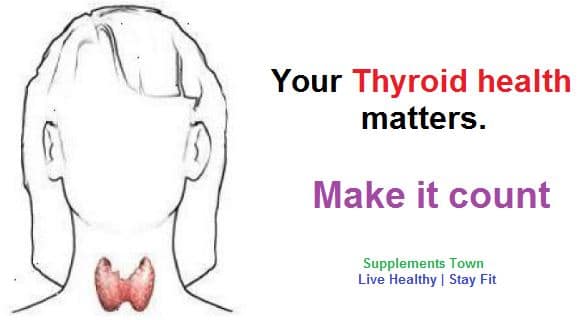
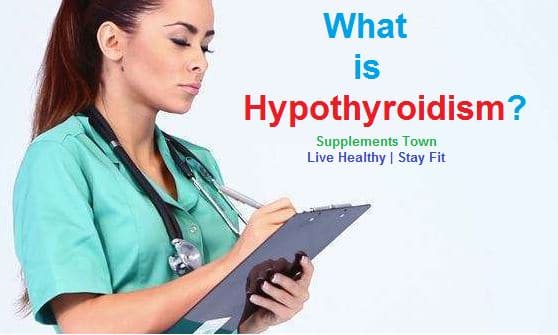
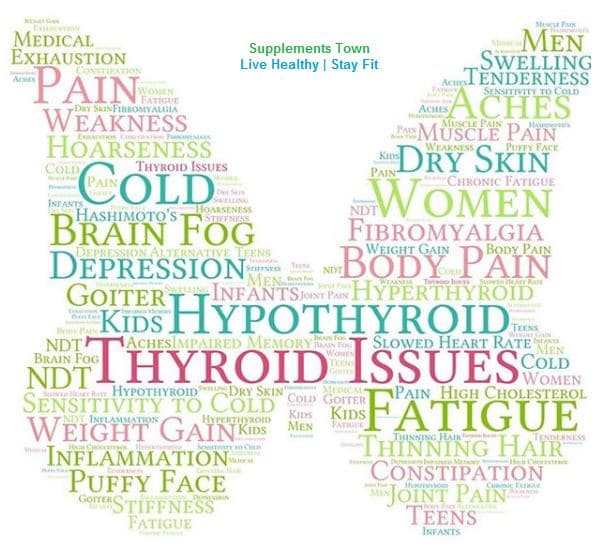



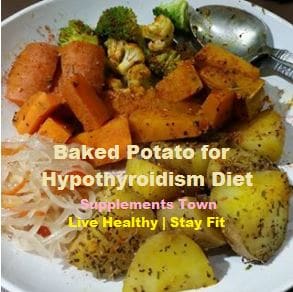


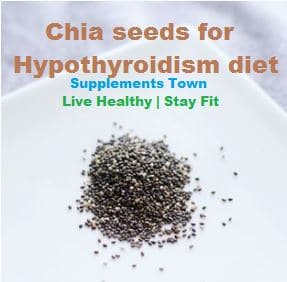



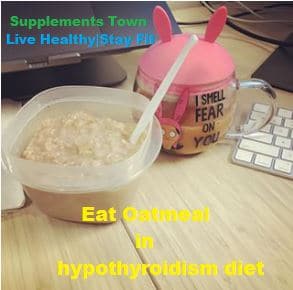

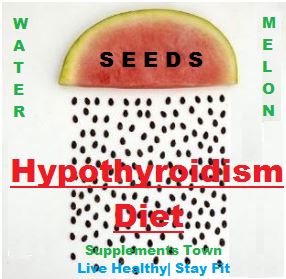

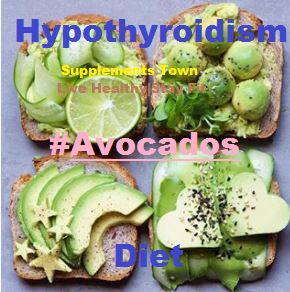


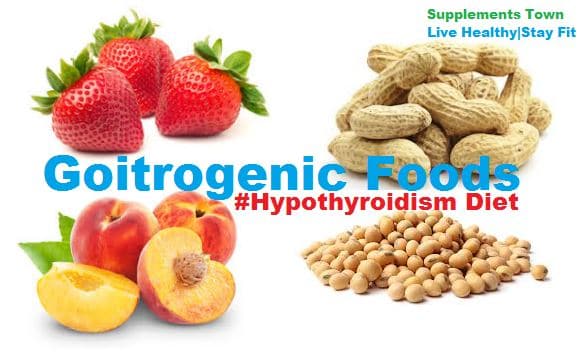

Leave a Reply